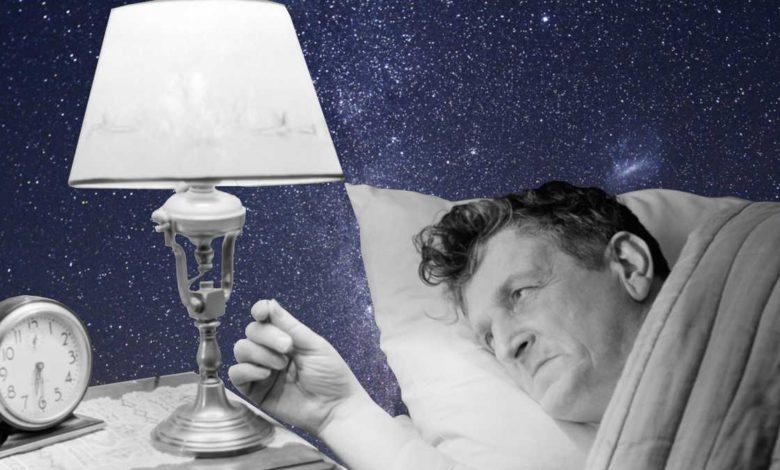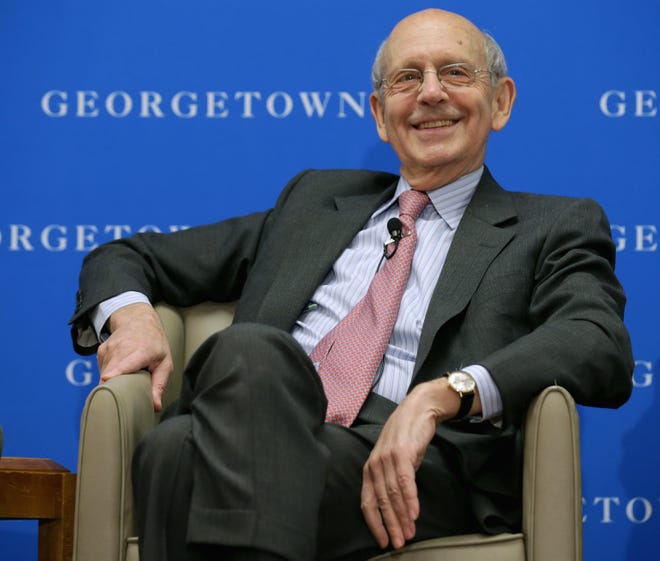
good sleep is important and what time you go to bed might make a difference, according to a study of 2000 americans conducted by one poll on behalf of Circus Simmons bedding. Those that say they have excellent sleep, go to bed at 9 39 PM. However, the average time people head for bed is 10 p.m. 29% of those who say they experienced bad sleep wake up at least five times per night. For a lucky 37% of respondents, they can fall right back to sleep. Others take about 30 minutes to feel sleepy again and they find things to fill the time. 45% take time to read and 44% watch. Some TV. The service simmons bedding study found that 43% of respondents would give up coffee if they could get better sleep. It makes sense if they're getting better sleep, they probably won't need the coffee.
Why do we sleep? Scientists try to answer the question
It’s strange when you think about it: Human beings spend nearly a third of their lives lying down with their eyes closed, dead to the world. But we have a biological need for sleep because it delivers numerous unbeatable benefits; it gives us more energy, reduces stress, and bolsters the immune system. While we sleep, our bodies also repair cells and fine-tune hormone levels.Related video above: Americans Want Better Sleep! Here Are Some Ways They’re Trying to Get That Done“Sleep affects almost every tissue in our bodies,” Dr. Michael Twery, a sleep expert, writes in a blog post for the National Institutes of Health. “It affects … our immune system, appetite, breathing, blood pressure, and cardiovascular health.” On the flipside, not sleeping enough can have disastrous consequences on our wellbeing. Drowsy people are much more likely to make poor decisions and be involved in traffic accidents. And chronic sleep deprivation can lead to a weakened immune system and increase your risk of developing depression.These are all compelling reasons to hit the sack, but they don’t completely explain why humans spend 8 hours unconscious and paralyzed each night. As noted sleep scientist Allan Rechtschaffen once said, “if sleep doesn’t serve some vital function, it is the biggest mistake evolution ever made.” For decades, scientists have been trying to solve the mystery of why humans sleep, with four possible theories paving the way: the inactivity theory, the energy conservation theory, the restorative theory, and the brain plasticity theory. Inactivity TheorySometimes referred to as the “adaptive” or “evolutionary” theory, the inactivity theory was one of scientists’ first stabs at an explanation behind sleep, made back in the 1920s, before scientists had started sleep labs or discovered rapid eye movement. The idea is that for animals, night is a vulnerable time, when darkness makes it difficult to move safely or avoid predators. Lying still and silent was a good way to avoid danger until morning. Through evolution, the theory posits, this strategy eventually morphed into what we now call sleep. The inactivity theory has one glaring problem, though: falling unconscious at night would have heightened vulnerability and made it nearly impossible to react to danger. Energy Conservation Theory This theory suggests that the primary function of sleep is to cut down on the amount of energy an animal needs and how much it uses. For most of us today, grabbing a snack is generally a simple task, but for ancient humans, finding food required a ton of time and effort. Sleeping through the night—a time when hunting was challenging and hazardous anyway—was a good strategy to conserve energy.This theory is backed up by research that shows when humans are asleep, their metabolism slows by approximately 10% (this figure is higher in other species). For example, both body temperature and caloric demands drop while we sleep. Many researchers consider the energy restoration theory to be part and parcel of the inactivity theory.Restorative TheoryAfter a long night of sleep, we often feel not just rested, but restored. Some scientists think that physical and cognitive restoration is actually why we sleep. The restorative theory has gained steam in recent years thanks to a slew of convincing animal and human studies. For instance, in Rechtschaffen’s experiments, carried out in the late 1980s, lab animals deprived entirely of sleep lost all immune function and died in a matter of weeks. Scientists have also discovered that most restorative functions—including muscle and tissue repair, protein synthesis, and the release of growth hormones—occur while humans sleep.Additionally, it appears sleep somehow boosts our immune system. A 2009 Carnegie Mellon University study showed that people who got seven or fewer hours of sleep each night were about three times more likely to become ill when exposed to the common cold than those who got 8 hours or more. But it’s not just your body that’s rejuvenated while you catch your Z’s. When you are awake, a chemical called adenosine accumulates in your brain. A byproduct of cellular activity, it’s adenosine that is thought to make us feel tired; as more builds up during the day, the more tired we become. During sleep, the body clears adenosine from the brain, allowing us to feel refreshed and alert when the alarm goes off.Brain Plasticity TheoryOne of the newest and most exciting theories about why we sleep is based on research that suggests sleep is correlated to changes in the structure and organization of the brain, a phenomenon known as brain plasticity. This theory, sometimes called the information consolidation theory, forwards the idea that during sleep, our brain sorts through the information we have acquired that day, throwing out data we don’t need and storing the rest in long-term memories. Several studies support this notion, demonstrating that sleep deprivation has a negative impact on our ability to learn and recall information.Scientists still aren’t exactly sure how sleep and memories are connected, though many researchers think that the brainwaves during different stages of sleep may be correlated with certain types of memories, such as memories that preserve facts and others that preserve procedures. The brain plasticity theory may explain why infants and young children, whose brains are still developing, need so much sleep. Infants, for example, spend up to 16 hours a day asleep, and much of that time is spent in REM sleep, the stage during which most dreams occur.Whether sleep transforms our brains or conserves precious calories, scientists are unlikely to discover one, indisputable reason behind sleep. In fact—while these theories may have distinct names and proponents—the reason why we sleep is likely a combination of these ideas, or quite simply, all of the above.
It’s strange when you think about it: Human beings spend nearly a third of their lives lying down with their eyes closed, dead to the world. But we have a biological need for sleep because it delivers numerous unbeatable benefits; it gives us more energy, reduces stress, and bolsters the immune system. While we sleep, our bodies also repair cells and fine-tune hormone levels.
Related video above: Americans Want Better Sleep! Here Are Some Ways They’re Trying to Get That Done
“Sleep affects almost every tissue in our bodies,” Dr. Michael Twery, a sleep expert, writes in a blog post for the National Institutes of Health. “It affects … our immune system, appetite, breathing, blood pressure, and cardiovascular health.”
On the flipside, not sleeping enough can have disastrous consequences on our wellbeing. Drowsy people are much more likely to make poor decisions and be involved in traffic accidents. And chronic sleep deprivation can lead to a weakened immune system and increase your risk of developing depression.
These are all compelling reasons to hit the sack, but they don’t completely explain why humans spend 8 hours unconscious and paralyzed each night. As noted sleep scientist Allan Rechtschaffen once said, “if sleep doesn’t serve some vital function, it is the biggest mistake evolution ever made.”
For decades, scientists have been trying to solve the mystery of why humans sleep, with four possible theories paving the way: the inactivity theory, the energy conservation theory, the restorative theory, and the brain plasticity theory.
Inactivity Theory
Sometimes referred to as the “adaptive” or “evolutionary” theory, the inactivity theory was one of scientists’ first stabs at an explanation behind sleep, made back in the 1920s, before scientists had started sleep labs or discovered rapid eye movement. The idea is that for animals, night is a vulnerable time, when darkness makes it difficult to move safely or avoid predators. Lying still and silent was a good way to avoid danger until morning. Through evolution, the theory posits, this strategy eventually morphed into what we now call sleep.
The inactivity theory has one glaring problem, though: falling unconscious at night would have heightened vulnerability and made it nearly impossible to react to danger.
Energy Conservation Theory
This theory suggests that the primary function of sleep is to cut down on the amount of energy an animal needs and how much it uses. For most of us today, grabbing a snack is generally a simple task, but for ancient humans, finding food required a ton of time and effort. Sleeping through the night—a time when hunting was challenging and hazardous anyway—was a good strategy to conserve energy.
This theory is backed up by research that shows when humans are asleep, their metabolism slows by approximately 10% (this figure is higher in other species). For example, both body temperature and caloric demands drop while we sleep. Many researchers consider the energy restoration theory to be part and parcel of the inactivity theory.
Restorative Theory
After a long night of sleep, we often feel not just rested, but restored. Some scientists think that physical and cognitive restoration is actually why we sleep. The restorative theory has gained steam in recent years thanks to a slew of convincing animal and human studies. For instance, in Rechtschaffen’s experiments, carried out in the late 1980s, lab animals deprived entirely of sleep lost all immune function and died in a matter of weeks. Scientists have also discovered that most restorative functions—including muscle and tissue repair, protein synthesis, and the release of growth hormones—occur while humans sleep.
Additionally, it appears sleep somehow boosts our immune system. A 2009 Carnegie Mellon University study showed that people who got seven or fewer hours of sleep each night were about three times more likely to become ill when exposed to the common cold than those who got 8 hours or more.
But it’s not just your body that’s rejuvenated while you catch your Z’s. When you are awake, a chemical called adenosine accumulates in your brain. A byproduct of cellular activity, it’s adenosine that is thought to make us feel tired; as more builds up during the day, the more tired we become. During sleep, the body clears adenosine from the brain, allowing us to feel refreshed and alert when the alarm goes off.
Brain Plasticity Theory
One of the newest and most exciting theories about why we sleep is based on research that suggests sleep is correlated to changes in the structure and organization of the brain, a phenomenon known as brain plasticity. This theory, sometimes called the information consolidation theory, forwards the idea that during sleep, our brain sorts through the information we have acquired that day, throwing out data we don’t need and storing the rest in long-term memories. Several studies support this notion, demonstrating that sleep deprivation has a negative impact on our ability to learn and recall information.
Scientists still aren’t exactly sure how sleep and memories are connected, though many researchers think that the brainwaves during different stages of sleep may be correlated with certain types of memories, such as memories that preserve facts and others that preserve procedures. The brain plasticity theory may explain why infants and young children, whose brains are still developing, need so much sleep. Infants, for example, spend up to 16 hours a day asleep, and much of that time is spent in REM sleep, the stage during which most dreams occur.
Whether sleep transforms our brains or conserves precious calories, scientists are unlikely to discover one, indisputable reason behind sleep. In fact—while these theories may have distinct names and proponents—the reason why we sleep is likely a combination of these ideas, or quite simply, all of the above.
Source link







